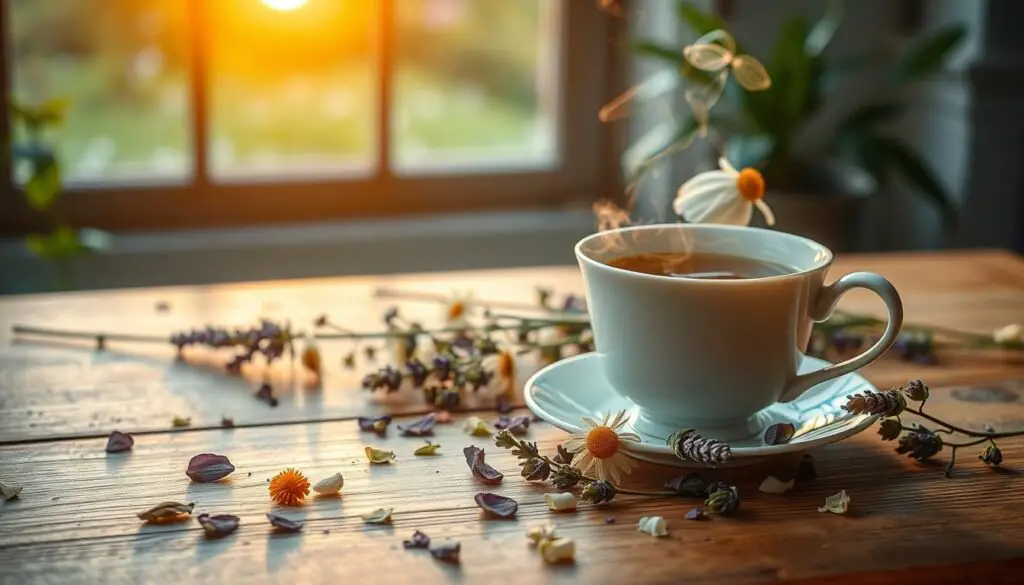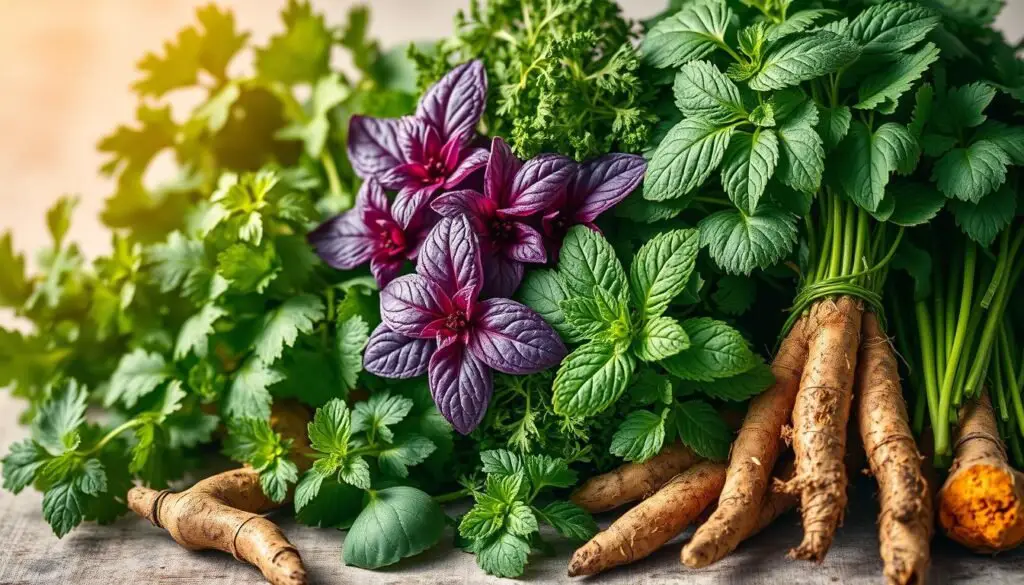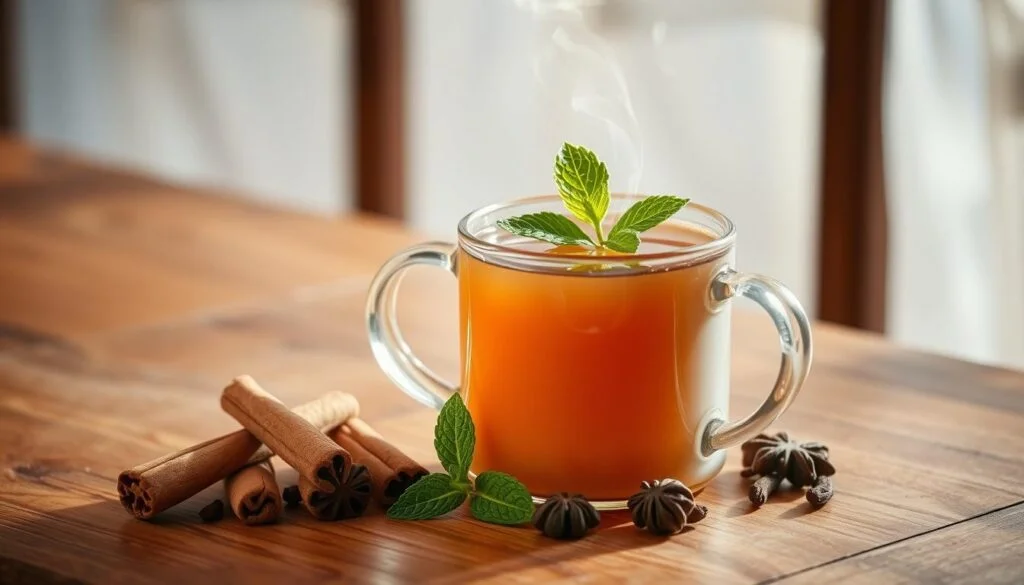Herbal tea for sleep is becoming a popular natural choice for those struggling to get a restful night. Lately, getting a good night’s sleep has become harder for many of us. People often struggle to fall asleep and want something natural to help. That’s why this simple, calming drink helps you relax before bedtime.
This kind of tea soothes the body and mind, making it easier to drift off without any medicines. It helps set a peaceful mood, so you can rest well through the night.
Key Takeaways
Herbal tea helps relax people and improves the quality of sleep.
A trend for natural aids moves toward pharmaceutical free alternatives.
Incorporating herbal tea into bedtime routines helps unwind.
Herbal tea, coupled with relaxation techniques, cures disorders related to sleep.
A relaxing bedtime routine helps you sleep better.
The Reason for Herbal Tea on Sleep
Knowing the reason for herbal teas can show how effective they are in helping sleep and lowering stress. For many centuries, herbal teas were very important in natural health care and were used by different cultures to calm us and help us get sleep.
How Natural Sleep Aids Help Your Brain Relax for Better Sleep
Herbal teas contain different compounds that could work with the brain to make it relax and promote sleep. For example, chamomile is basically known for its content of apigenin-antioxidant, which attaches itself to receptors in the brain and maybe lowers anxiety thereby making one sleepy.
Valerian root is thought to raise levels of gamma-aminobutyric acid (GABA) in the brain. GABA is a great neurotransmitter for controlling sleep. This shows how these compounds might work with the brain mechanisms for sleep and why herbal teas could be effective as sleep aids.
Stress relief and calm – benefits beyond sleep
People drink herbal teas not just to help with sleep, but because they also calm the mind and reduce stress. Making and sipping tea can be a nice little break that helps you relax after a busy day.
Some teas like lavender and lemon balm are known to lower stress and ease worries, making you feel calmer.
Why People Like These Herbal Teas for Sleep
| Herb | What It Does |
|---|---|
| Chamomile | Helps you relax and feel calm |
| Valerian Root | Helps you fall asleep easier |
| Lavender | Makes you feel less stressed |
.
Lavender tea gives you the use of nice smells in a calming cup. The oils in lavender help to calm and make worries go away, making it easier to sleep.
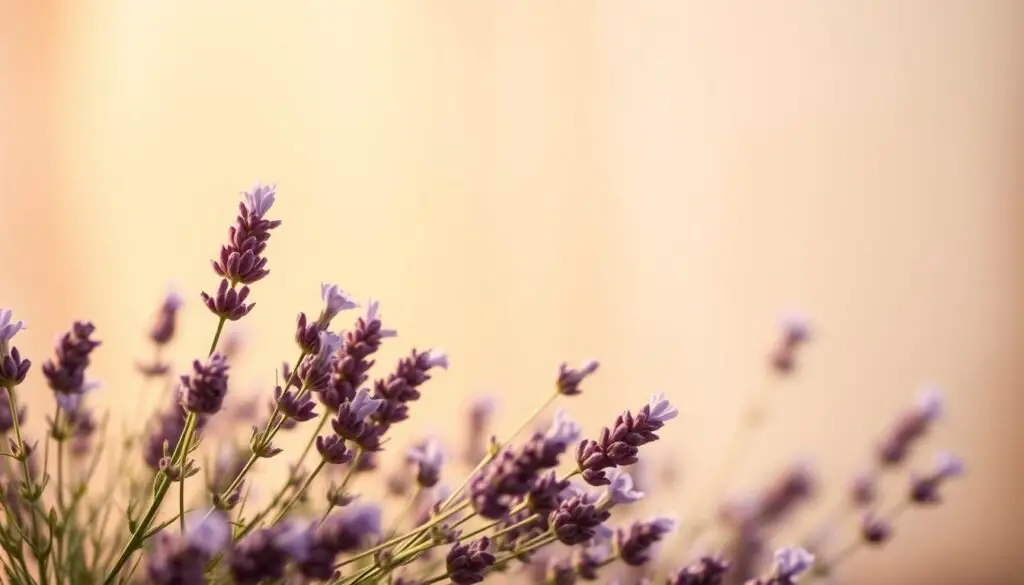
Passionflower: Herbal Tea for Sleep and Worry Relief
Passionflower tea is a popular herbal tea for sleep that helps reduce worries and restlessness. It boosts GABA in the brain, calming both the mind and body to support better sleep.
Lemon Balm: A Gentle Herbal Tea for Sleep
Lemon balm tea is another mild herbal tea for sleep. It soothes nerves, eases tension, and helps prepare your body for restful sleep.
How to Brew Herbal Tea for Sleep the Right Way
To get the best results from your herbal tea for sleep, proper brewing is key. Use fresh herbs and adjust water temperature depending on the type of tea. Gentle herbs like chamomile need lower heat, while roots like valerian handle boiling water well. Steep your herbal tea for sleep between 5 to 10 minutes, depending on your taste.
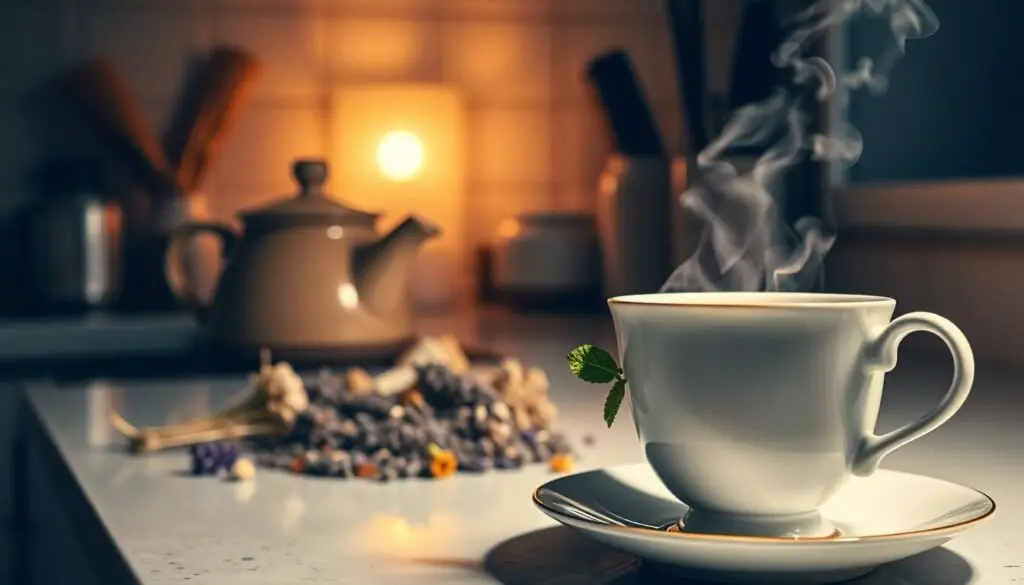
Creating Custom Blends for Your Sleep Needs
One of the delights of herbal teas is the chance to make special mixes just for your needs. By joining different herbs, you can help with many parts of sleep and calmness. For example, mixing chamomile with lavender can make the soothing effects stronger, while adding a little valerian root can help for deeper sleep.
Begin with an herb known for its sleep-promoting properties.
Add other herbs to enhance the effects.
Try different ratios until you find what works best for you.
Be aware of possible side effects and take necessary precautions.
Herbal teas are safe in general, but precautions should be observed. Some herbs take an interaction with drugs and also a situation of making more grave an underlying medical condition. For example, those who have allergies should be cautious when using new herbs. Herbal teas should not be consumed by pregnant or breastfeeding women unless a healthcare provider gives them permission because some herbs could act on the uterus or breast milk.
By paying attention to these things and using herbal teas the right way, you can get the good effects of better sleep and calmness. Always look into the plants you are using and talk to a health care worker if you worry.
Conclusion
As discussed, herbal teas provide a safe and effective means of promoting good sleep quality plus relaxation. Knowing the science of herbal tea for sleep plus using the right natural sleep aids will help you make a big step toward getting restful nighttime sleep.
The best herbal teas for sleep, chamomile, valerian root, and lavender offer different benefits that you can choose according to your needs. If used correctly by brewing the teas appropriately and making use of them in a proper way along with other relaxation techniques, they help create an environment for good sleep that promotes wellness.
As you continue your path toward healthier sleep, take a moment to consider the herbal teas and what they may do for changing how you experience sleep. With their organic, gentle way, these teas present quite a hopeful fix for anyone in need of a calm night’s rest.
Some of the very good herbal teas for sleep are- Chamomile, Valerian Root, Lavender, Passionflower, Lemon Balm. These properties are mostly associated with the quality of relaxation and sleeping well. How do these herbal teas work on the mind to promote sleep?
Herbal teas have active principles contained naturally within them that act with the body’s sleeping mechanisms to help induce relaxation and decrease tension. For instance, apigenin found in chamomile is an antioxidant herbaceous binding to the gaba receptors helping calm both mind and body.
Do herbal teas help stress and anxiety as well as sleep?
Yes, many herbal teas, like Lavender and Passionflower do calm a person and reduce their stress and anxiety making it easier for them to fall asleep as well as stay asleep.
How should I brew herbal tea so that it gives me maximum benefits related to sleep?
To prepare herbal tea well, take one teaspoon of dried herbs for each cup of boiling water. Let it steep for 5-10 minutes; then strain before drinking. Adjust both the quantity of herbs and the steeping time according to your taste preference.
When is the right time to have herbal tea for sleep?
It is usually advised to consume herbal tea within 30-60 minutes before bed so that the active compounds can take effect and facilitate a good restful night. Are there any risks or warnings in the use of herbal teas for sleep?
Herbal teas are generally safe, however, it is not absolute as some people may manifest allergies or have interactions with medications. For example, certain medications should not be used in combination with Valerian Root and more caution needs to be exercised. Can I create custom blends of herbal teas for my specific sleep needs?
Yes, different herbal teas can be mixed to make a blend that fits your requirements. For example, mixing Chamomile and Lavender it can promote relaxation plus make the quality of sleep better.
